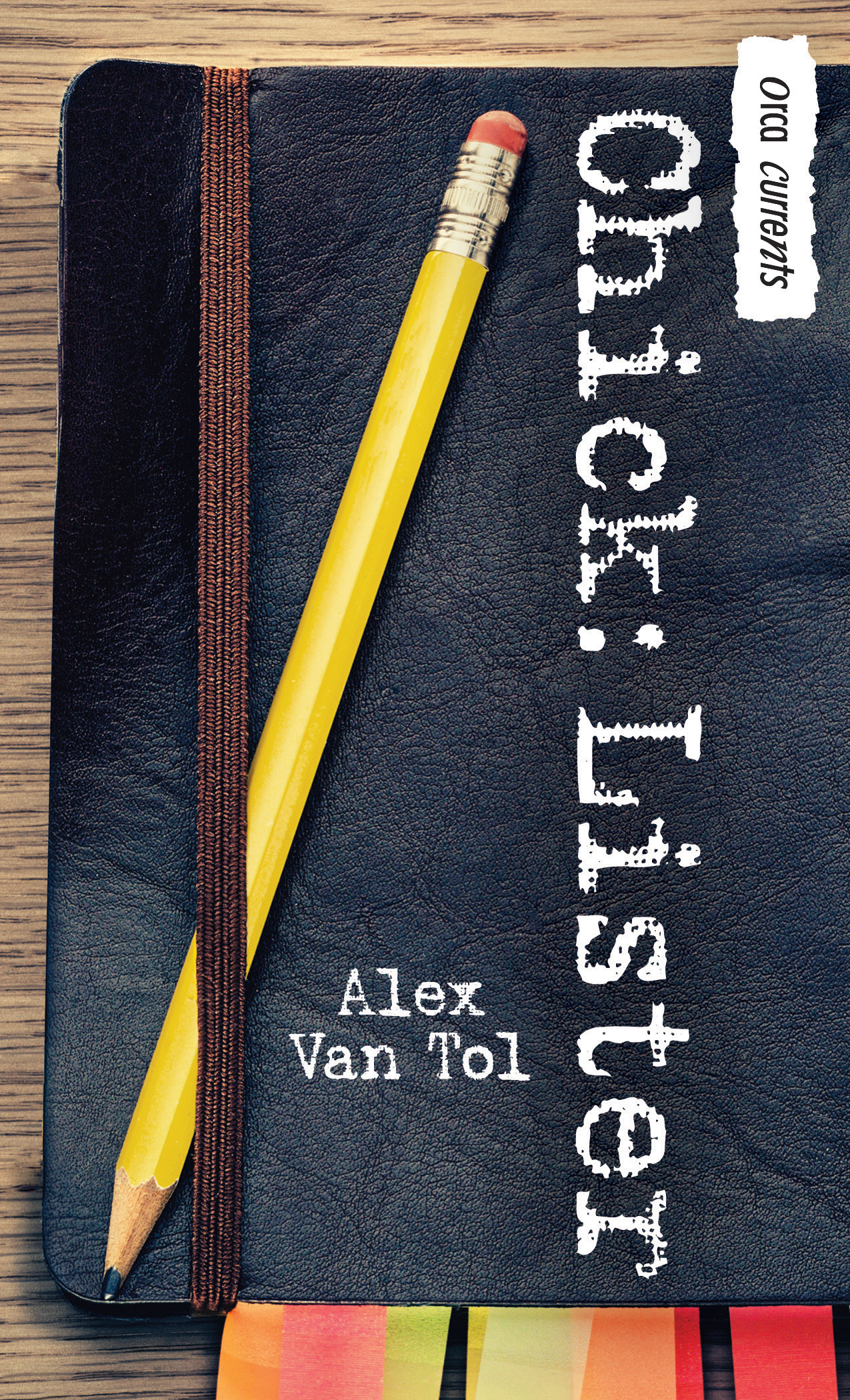| ________________
CM . . .
. Volume XXI Number 22. . . .February 13, 2015
excerpt:
In Chick: Lister, by Alex Van Tol, Chick is a 14-year-old boy who secretly suffers from compulsive behaviour in the form of list-making. He fears that he may have obsessive-compulsive disorder, and his efforts to hide his urges from his attractive debate partner, Audrey, compound his stress and add potential romance to his list of triggers. Audrey becomes a supportive figure as she discovers his compulsion and encourages him to confront the main source of his distress, which is his relationship with his overbearing father. Chick's father seems to be living out his own dreams through his son, pushing him into the Debate Club in order to prepare his son for the career as a lawyer that he never pursued for himself. Chick's compulsion grows as the debate that he and Audrey are preparing for draws nearer until events at the competition push him to confront his father in a dramatic way, though his father's reaction surprises him. Chick is a likeable narrator, and Van Tol writes convincingly, particularly when describing the feeling of compulsion that overwhelms Chick periodically. However, at times, the voice of Chick becomes inconsistent with his character, such as when Chick's internal voice wishes that Audrey would marry him, bear his children, and live on a mountainside farm with him to "grow rainbows and roses." (p. 74) These moments are few and far between, however. Overall, Chick's voice is that of a likeable and believable 14-year-old boy. The pacing of the novel is steady, and the contemporary setting is accessible. The first person voice of Chick is mostly credible. The language and slang used by him are appropriate to the character and contribute to the believability of the narrator. Though a successful novel overall, Chick: Lister would benefit from further exploration of Chick's potential mental illness. His compulsion is presented as an antagonist, and something that causes him terrible distress, yet Audrey dismisses his behaviour as simply a personal oddity, a quirk. While this is a relief to Chick, who fears being perceived as "crazy," it also undermines the seriousness of what is rapidly becoming a debilitating behaviour. When it is revealed that his father sees a clinical counsellor, the door seems to be opened for Chick to visit a mental health provider and to hopefully gain some relief from his affliction, yet this is never pursued within the story. While I recognize that the short length of the novels in this series, “Orca Currents”, limits the narrative, between Audrey's dismissal and the fact that Chick never decides to get help for his mental health, the seriousness of his compulsion feels unaddressed by the novel. Chick’s mental health feels like a loose end for the story, and that undermines what is otherwise a satisfying ending. As part of the “Orca Currents” series, Chick: Lister is a high interest novel written for an audience reading below grade level. It serves this goal well, providing an engaging story with themes of independence and light romantic interest that will be of interest to pre-teens and young teenagers, from ages 10 to 14. Despite its flaws, the mental health angle encourages empathy and compassion within readers. Chick: Lister would make a solid addition to the shelves of any middle school library and to the intermediate collection of an elementary school library. Recommended. Devon Galitsky has a literature degree from the University of the Fraser Valley and lives in Chilliwack, BC.
To comment
on this title or this review, send mail to cm@umanitoba.ca.
Copyright © the Manitoba Library Association. Reproduction for personal
use is permitted only if this copyright notice is maintained. Any
other reproduction is prohibited without permission.
Next Review |
Table of Contents for This Issue
- February 13, 2015. |
